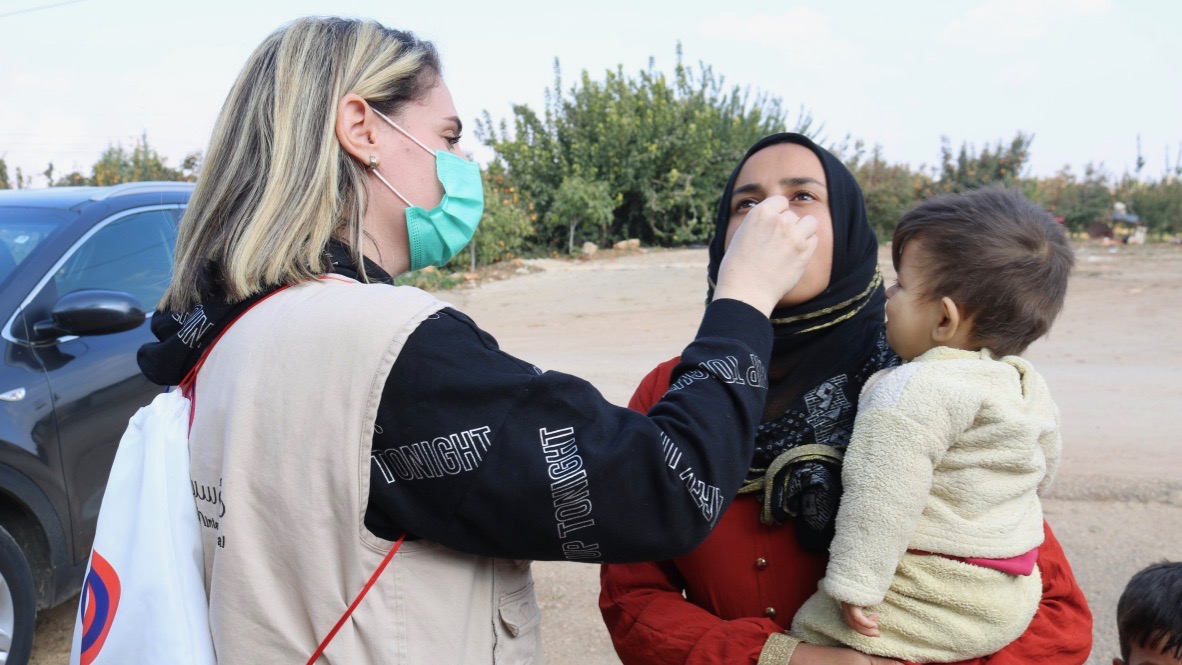Health activists in Lebanon display cautious hope as the number of cholera cases seems to stagnate, more than a month after an outbreak of the disease was declared in October. As of December 11, 5135 cholera cases were reported across Lebanon’s governorates, including 23 deaths.
This is the first cholera outbreak in Lebanon since 1993, and early reports had been dominated by the fear that the local health system would be inadequate or unprepared to respond to this kind of public health emergency. Health workers and infrastructure had already been shouldering the pressure of a general social and economic crisis in Lebanon for months, and this had already created significant gaps regarding access to care. Because of this, early in the outbreak, health experts were concerned that the system might collapse if the number of cases escalated out of control.
A competently implemented cholera response
According to Mohammad Alzayed, Health Coordinator at Amel Association International, the cholera response, however, proved to be competently organized. “Under the coordination of the Ministry of Public Health, international organizations and four organizations working locally—Amel, Doctors Without Borders (MSF), the Lebanese Red Cross, and Medair—were able to implement a vaccination campaign to alleviate the outbreak”, he said.
Their response included an emergency roll-out of cholera vaccines. In the first stage of the outbreak, Lebanon requested 600,000 doses of the oral vaccine from the International Coordinating Group on Vaccine Provision. These were promptly approved and sent to the country, said Alzayed, and about 80% of that vaccine stock was equally promptly administered in high-risk zones by the beginning of December.
Later, Lebanon requested an additional 2 million doses, of which 1.8 million were approved and will be delivered in batches beginning in December. “The focus now is to expand vaccine coverage beyond the high-risk zones. For example, we have already implemented the vaccination campaign in schools, but in the next phase we’ll be expanding it to areas adjacent to high-risk areas,” Alzayed said.
Securing access to clean, safe water remains key
The response efforts put an equally strong emphasis on safe drinking water, sanitation and hygiene (WASH) standards, since these play a crucial role in managing cholera outbreaks. Meeting safe-water standards in Lebanon has been challenging, among other things, because it is difficult to obtain fuel for water-pumping stations — which has a great deal to do with overall fuel availability and price.
Water management and access to clean water is not an issue in refugee camps in the north of the country, where this outbreak probably originated given the dire living conditions. Even in the health system, water management is far from what it should be. “In many regions, even hospitals don’t have the technical capacity for managing medical wastewater. So one of our short term interventions was building such capacities in at least one health institution in each region. Still, this is something that will have to be developed further,” said Mohammad Alzayed.
The WASH organizations involved in the response efforts took care of the chlorination of water and the monitoring of water supplies delivered by trucks. In an attempt to make the regions less dependent on outside support, they are now training people from the municipalities to perform the tasks of WASH inspectors. This is important not only because of the current outbreak, but also because regional public health capacities differ a great deal, putting some at more risk than others.
“Last week we had a cholera flare-up in a home for the elderly in Tripoli, in the north. It was very quickly addressed because a system was in place. But if it had happened elsewhere, it could have gone much worse,” according to Alzayed.
Political decision to prepare for future outbreaks
To minimize the possibility of regional differences undermining the response to this and other outbreaks, the next phase of the reaction to cholera in Lebanon should include strengthening of health, water, and sanitary infrastructure. While the Ministry of Public Health has taken a proactive role in the cholera response, the Ministry of Energy and Water or the Ministry of Agriculture—which have a crucial role to play—have so far failed to do the same, warns Alzayed.
“In this context, the prioritization of water pumping and waste water management, as well as developing the sewage system, has to be seen as a political decision. All the ministries should step up and make sure we are ready to respond to more widespread outbreaks,” he said.
Given the available resources and problems facing the country, Lebanon’s response to the cholera outbreak remains satisfactory. “But we have to be honest and admit that this outbreak was somewhat limited. Had it spread more quickly, our capacities would not have been enough and we would now be facing a much bleaker scenario,” concluded Alzayed.
People’s Health Dispatch is a fortnightly bulletin published by the People’s Health Movement and Peoples Dispatch. For more articles and to subscribe to People’s Health Dispatch, click here.





